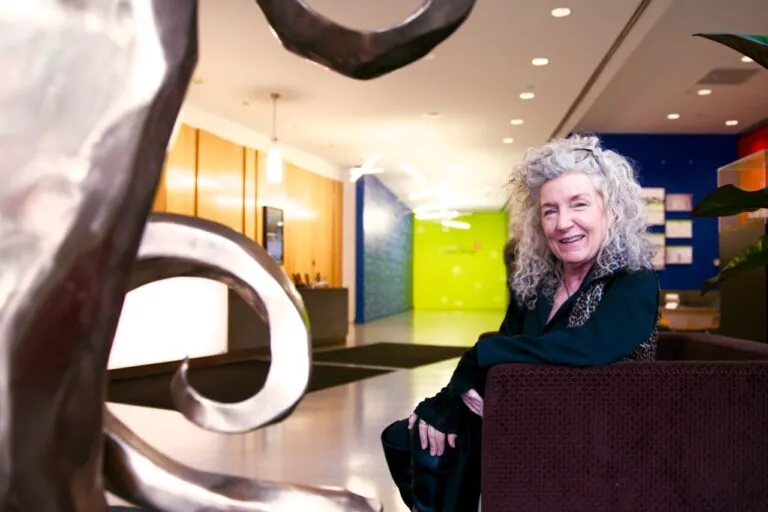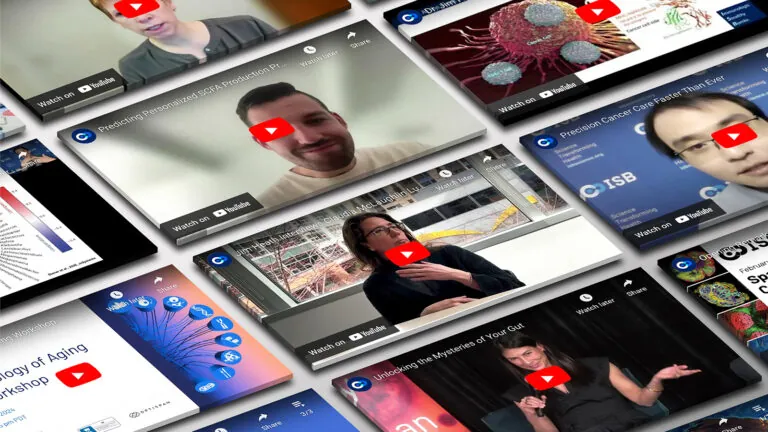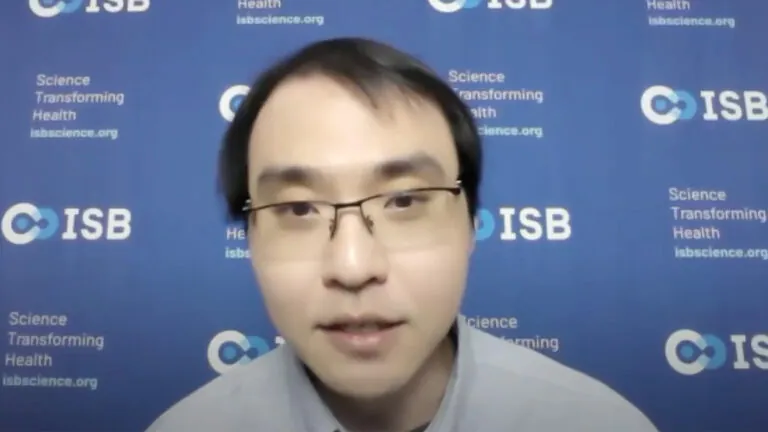
Scientists Decode Diet From Stool DNA – No Questions Asked
ISB’s Gibbons Lab developed a breakthrough method that analyzes food-derived DNA in fecal metagenomes, allowing for data-driven diet tracking without the need for burdensome questionnaires.

ISB’s Gibbons Lab developed a breakthrough method that analyzes food-derived DNA in fecal metagenomes, allowing for data-driven diet tracking without the need for burdensome questionnaires.

We are deeply saddened to share the passing of renowned artist Ginny Ruffner earlier this year at 72. Ginny has long been an integral part of ISB’s community. Her vibrant artwork continues to bring life to our spaces, and her advocacy as a Foundation Board member leaves a lasting legacy.

Scientists at the Institute for Systems Biology (ISB) reveal how T cells “decide” their fate in fighting infections like COVID-19, paving the way for improved treatments for infections, cancer, and autoimmune diseases.

ISB hosted a virtual event to share updates on the ongoing RECOVER study, a national NIH-funded initiative to understand and address Long COVID.

Reflecting on the past year, ISB has a lot to celebrate: groundbreaking research published in leading scientific journals, well-earned promotions, widespread media coverage, and more. Enjoy our year-in-review roundup highlighting some of the important, interesting, and impactful highlights of 2024.

ISB has been selected as a winner of the 2024 Amazon Web Services (AWS) IMAGINE Grant. The grant will support ISB’s continued development of My Digital Gut, an online decision-support platform that will help make microbiome-informed nutrition and healthcare personalized, predictive, and preventive.

Dr. Wei Wei has developed a promising new companion diagnostic tool called MetaboCore to help physicians quickly select the most effective systemic therapy for each cancer patient.

New research highlights strengths of large language models in uncovering social determinants of health while underscoring the need for human oversight and improved de-identification methods.